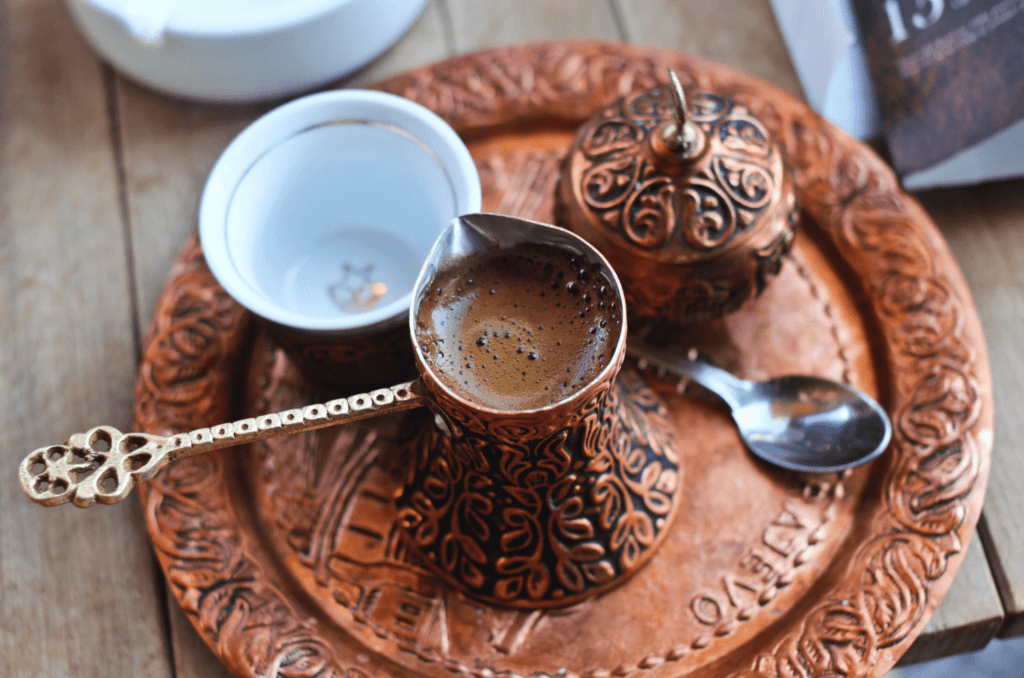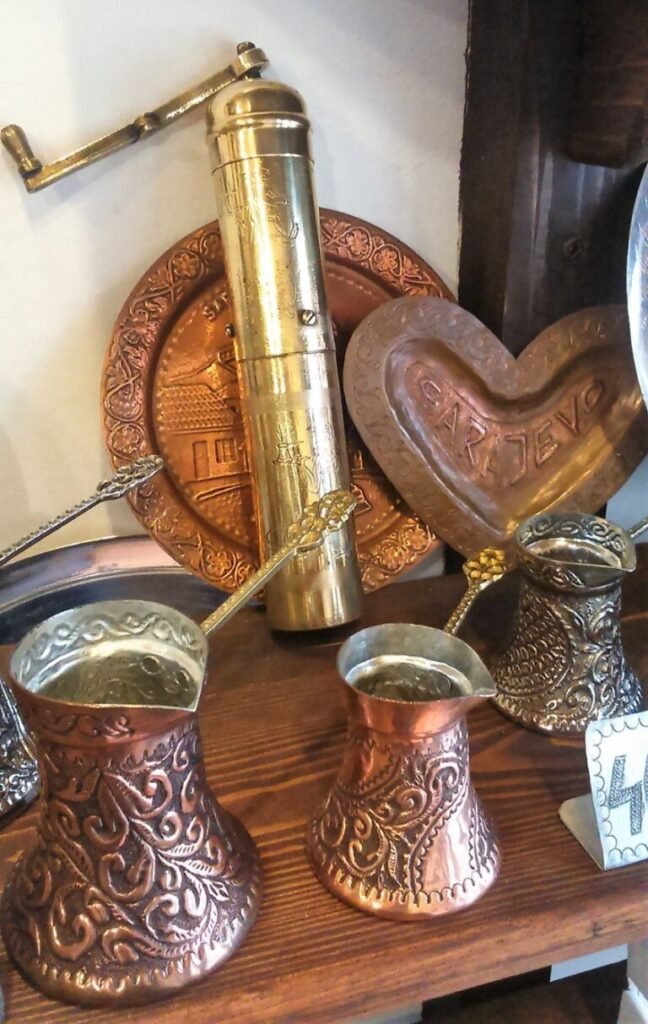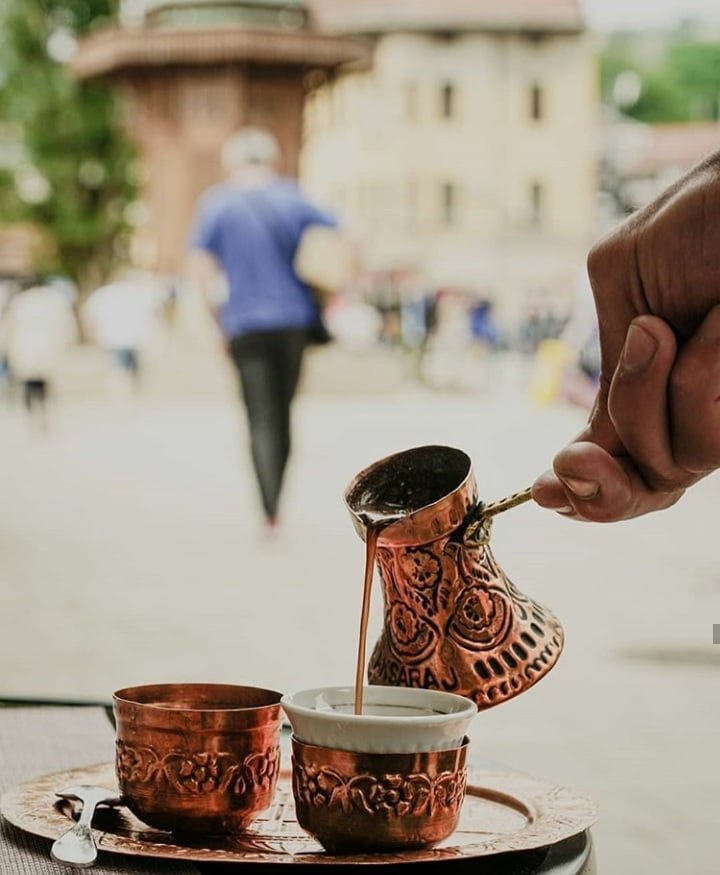If you ask Bosnians, one of the things they enjoy the most is traditional Bosnian coffee. Why is it like that?

The word kahva (coffee) (the words kafa and kava are also used) in the languages of the people of southeastern Europe came from the Turkish word kahve.
At first, it was served exclusively in the houses of the rich. However, it did not remain the privilege of the rich for long, so coffee houses or taverns were opened in Sarajevo’s bazaar, where coffee was drunk and which very quickly became the center of social life. From the bazaar, this custom spread to every house and became an indispensable part of everyday life. Coffee was ground by hand in a coffee grinder.

Traditional Bosnian coffee is very similar to Turkish coffee, but Bosnians will not be happy if you tell them that. What are the differences? First, Turkish coffee is stronger. Second, the difference is in the preparation.
Bosnian coffee is made by putting coffee in a džezva (container in which coffee is prepared), pouring boiled water over it, and boiling it a little more. It is drunk with a sugar cube (or with a sweet called lokum), by dipping the sugar cube into the coffee, biting it, and then taking a sip of the coffee. It is the traditional Bosnian way and is drunk from a cup called fildžan.
When preparing Turkish coffee, water, coffee, and sugar go together in the džezva and it is drunk without sugar cubes.

Traditionally, in Bosnia, coffee is drunk in the morning, afternoon, and evening. The way of preparing coffee in Bosnia is unique in the world and as such is one of the symbols of this country. Bosnian coffee has been the backbone of social life in Bosnia and Herzegovina for centuries. When you invite someone for coffee, you are actually inviting them to chat and hang out. Thus, coffee is often an excuse for socializing and as such has a special status in Bosnia and Herzegovina.
If you come to Bosnia and Herzegovina, do not miss trying the traditional way of drinking Bosnian coffee.
Visit our social media profiles as well:
